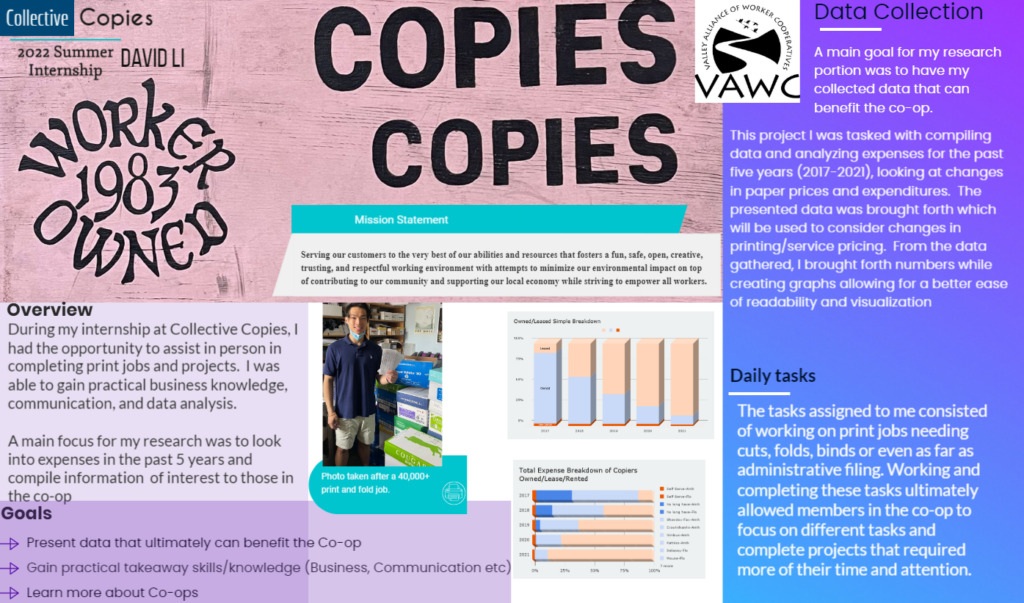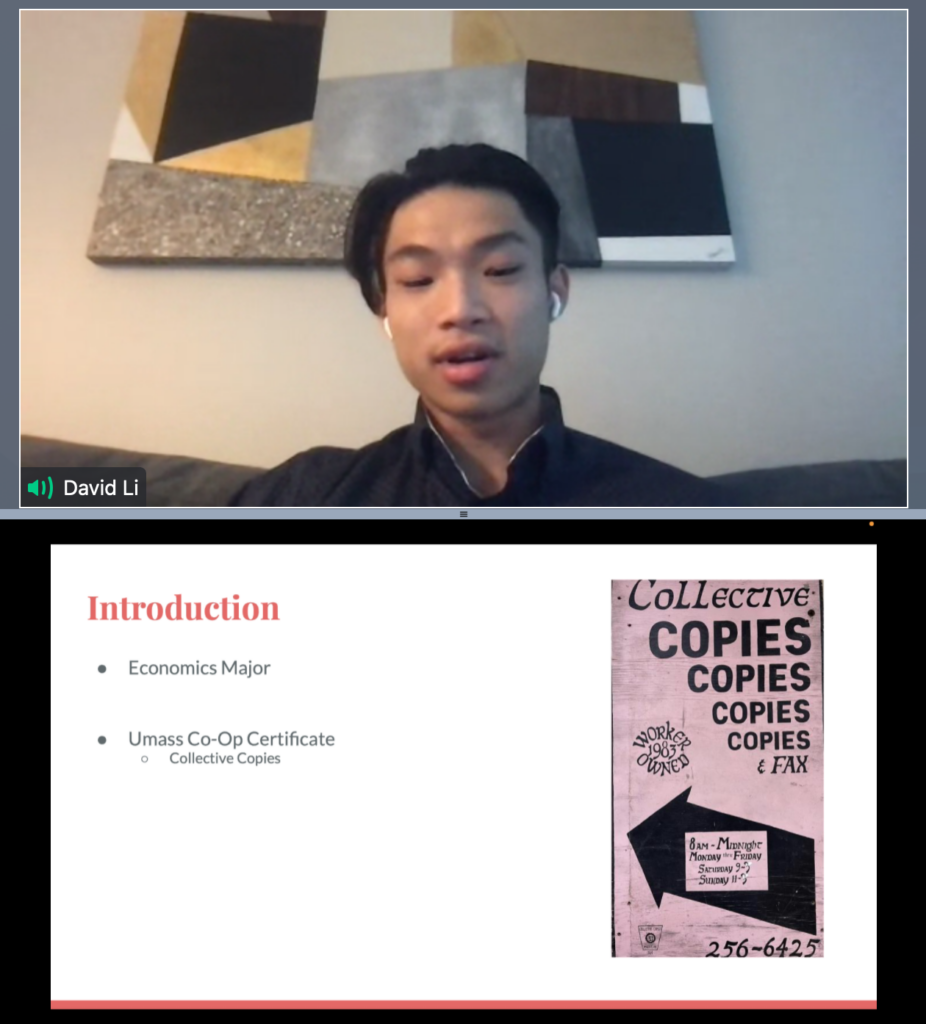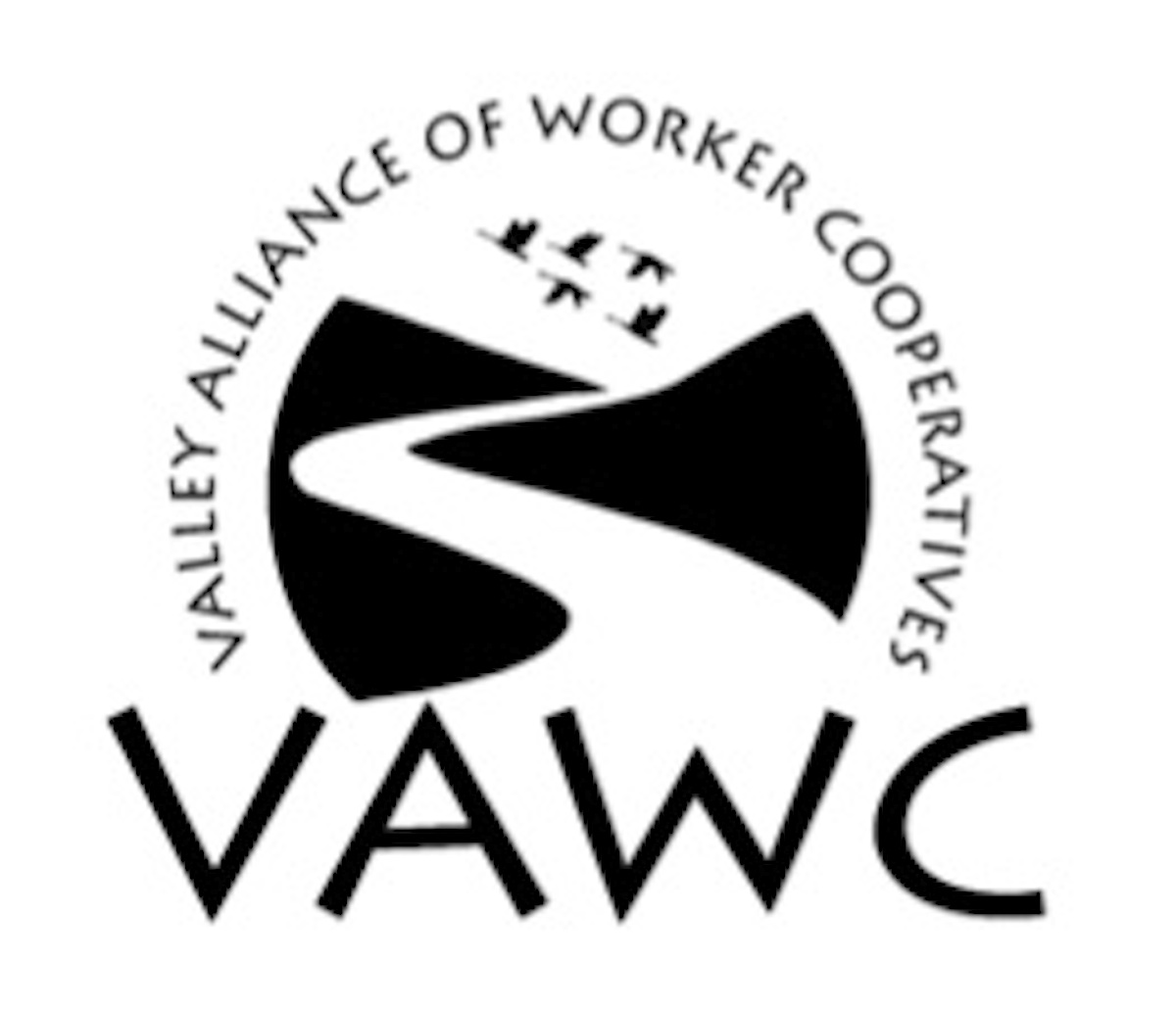
Thank you to David Li, Collective Copies’ summer intern for 2022. David’s work both on-the-floor and in research provided critical support and we’re thankful for his efforts in the VAWC system.
Thanks, as well, to everyone at the Certificate in Co-operative Enterprise at the Department of Economics at UMass, Amherst for making this possible. Interested in the Certificate? Contact us at info@valleyworker.coop.
David Li’s Internship Report Back
I have learned a lot from my internship at Collective Copies, be it the research project or working behind the scenes completing print jobs large or small. By joining Collective Copies I was able to experience how it felt to be in co-op day-to-day. This fortified the course work of the classes in the Certificate in Co-operative Enterprise through the Department of Economics at the University of Massachusetts, Amherst. I saw firsthand the cooperation between members who strived together which allowed Collective Copies to provide safe, dignified employment, and how that related to the chapters discussed and taught to me in class.
I was able to aid in tasks that greatly benefited the collective and members in my on-the-floor work. I alternated weeks being at the Florence and Amherst shops, whose day-to-day tasks included working on folds, prints, and administrative tasks. Working in both Amherst and Florence, I was able to alleviate the workload so members at Collective Copies could focus their attention on other projects. Some jobs may take a day or two, or even up to a week for a 40,000+ print and fold job. While all these tasks were assigned to me, I was learning the tools of the trade along the way. Many of the machines, such as folders, and cutters, were all new to me. While I did have some knowledge of how a copier and printer worked, the intricacy of setting up the machines and printers that allow for the best possible outcome, and maximization of resources were new to me. Such setups that involve making two small book copies could use 11×17 paper which could be cut in half with a machine that has a large blade, that would cut the paper precisely to create the two books, ultimately reducing the number of total prints needed. Furthermore, I was lucky enough to sit in on publishing meetings, where one meeting was with a logger from Maine, who wanted to print his prior book and have Levelers Press aid in his second book. This meeting was very surreal, where I saw his ideas and drafts turn into a finished product.


I was also assigned a small research project in which one of my main goals was to have data that would be useful for the collective. This opportunity allowed me to look into the financial aspect of a business, and work with some numbers. I dove into a few topics of interest brought forth by myself and other members of the co-op, where I looked at the changes in the past five years of paper prices, and expenses such as utilities and benefits. My research gave members of Collective Copies the information they need to move forward with certain vendors, renegotiate in some cases, and have a better understanding of where expenses were for their business. In concluding my research, I gave a final concluding presentation on what I found to be the most interesting points while addressing the interest of the collective. For me the two most interesting takeaways were learning the process of what it takes to publish/print a book from start to finish, and how workers within a cooperative are generally happier.
